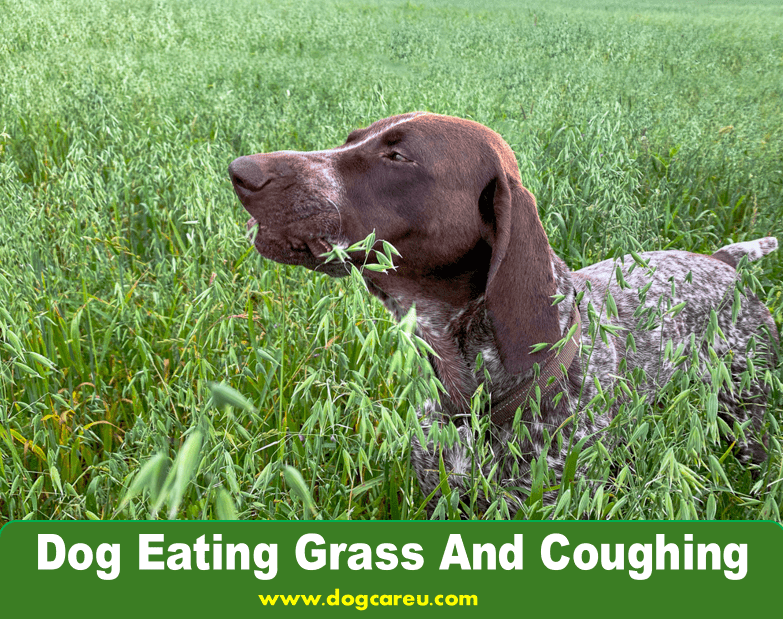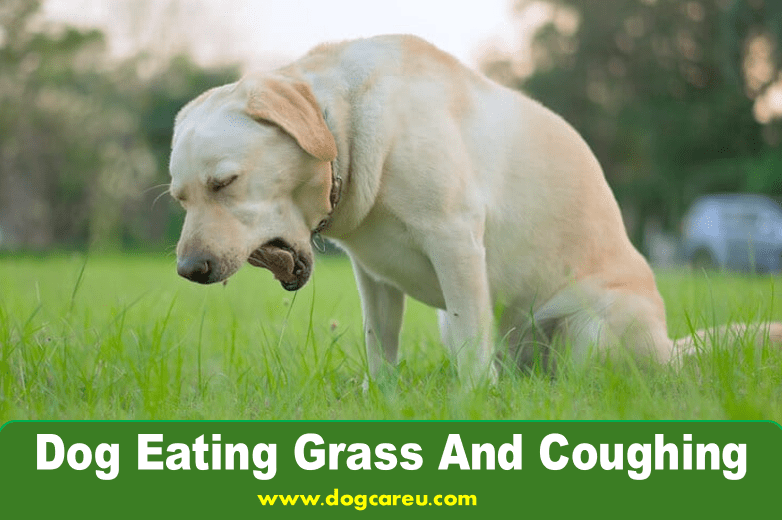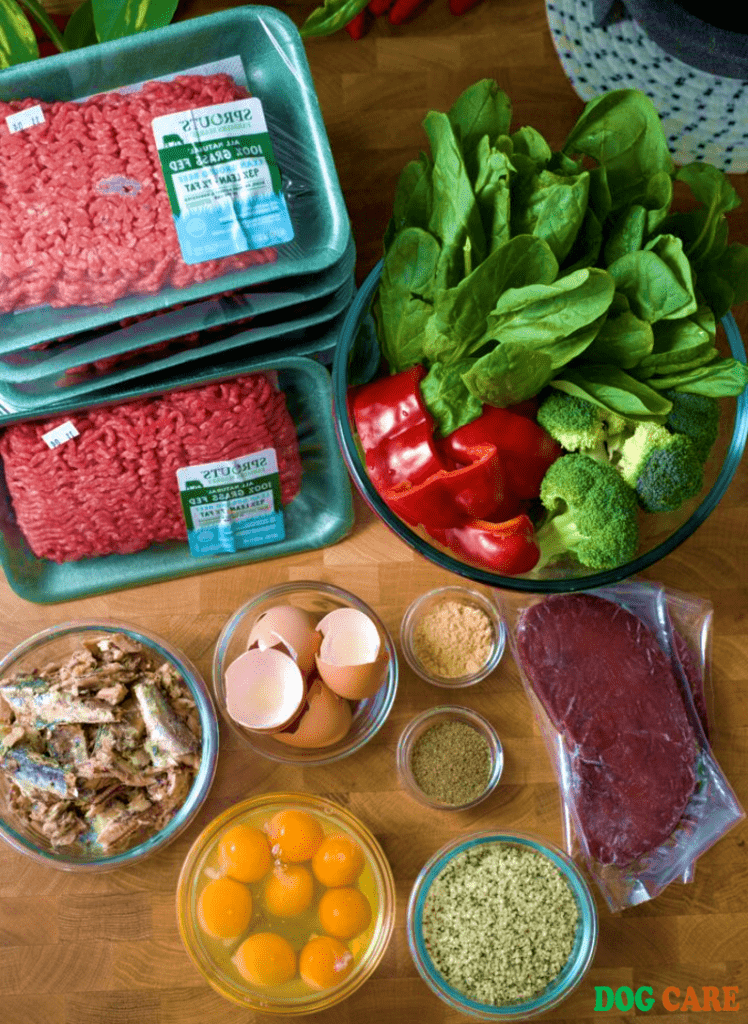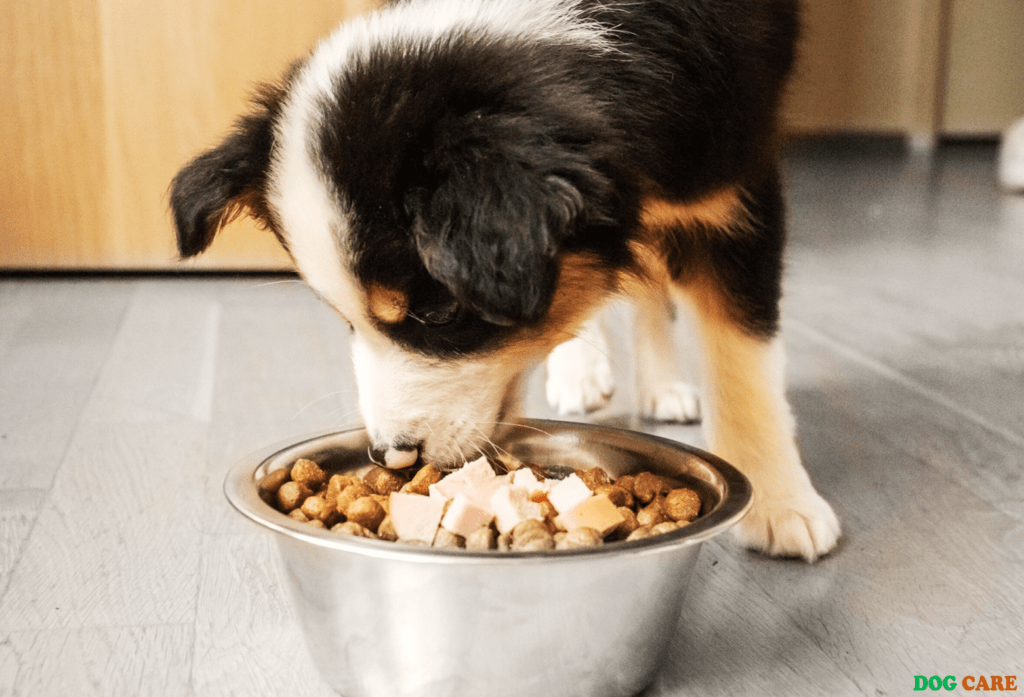Dog Eating Grass And Coughing: Due to evolutionary instincts, dogs eating grass may induce vomiting to alleviate stomach upset. Many dog owners notice their pets munching on grass, sometimes followed by coughing.
While it may seem odd, this behavior is quite common among dogs. Understanding why dogs eat grass and cough can help determine if it’s a harmless habit or a sign of an underlying issue. Physical reasons, such as stomach upset or gastrointestinal issues, may drive dogs to consume grass.
However, caution should be exercised, as some grass types, like foxtails, can cause coughing and harm a dog’s health. Observing your dog’s behavior and seeking veterinary advice can clarify this puzzling yet fascinating behavior.
Understanding Dog’s Behavior
Dogs are known to exhibit various interesting behaviors, including eating grass. This behavior might seem odd to us as dog owners, but it is quite common. Understanding why dogs eat grass and its potential issues is crucial for our furry friend’s well-being.
Reasons For Eating Grass
Curiosity: Dogs may eat grass out of curiosity. The texture and taste of the grass could be appealing to them.
Dietary Supplement: Some dogs eat grass as a dietary supplement. They may seek fiber and other nutrients they lack in their regular diet.
Stomach Upset: When feeling nauseous or experiencing stomach upset, dogs may instinctively eat grass to induce vomiting and alleviate discomfort.
GI Issues: Consuming grass can indicate underlying gastrointestinal issues, such as gastric reflux, pancreatitis, or inflammatory bowel disease.
Link To Vomiting And Stomach Upset
When dogs eat grass, it may lead to vomiting and stomach upset. Experts believe this behavior is an evolutionary trait inherited from ancient wild dogs. When feeling nauseous, these dogs instinctively consumed grass to induce vomiting, alleviating stomach discomfort.
Dogs with nausea or gastroesophageal acid reflux might eat grass or foreign material in an attempt to make themselves vomit, relieving their nausea and acid burn. However, dog owners need to monitor and address this behavior, as it can be associated with more serious health issues, such as foxtail ingestion leading to coughing.

Possible Health Issues
Dogs eating grass and coughing may be experiencing physical issues such as stomach upset or gastrointestinal problems. It could also be due to irritation from grass awns or foxtails, which can lead to coughing. If your dog shows these symptoms, it’s best to consult a veterinarian for proper diagnosis and treatment.
Gastrointestinal Problems
Dogs may eat grass to induce vomiting and alleviate stomach upset. It’s an evolutionary behavior from ancient wild dogs.
Respiratory Concerns
Grass awns or foxtails can penetrate a dog’s skin, causing lung or chest cavity issues and coughing.
Dogs can exhibit strange behaviors, like eating grass, due to gastrointestinal problems such as gastric reflux, pancreatitis, or inflammatory bowel disease.
Grass-related Medical Complications
Dogs eating grass and coughing can lead to several grass-related medical complications. While it is common for dogs to eat grass occasionally, excessive consumption can result in various health issues. Dog owners must know the potential impact on their canine companions’ well-being.
Impact On Canine Health
Eating grass can have both physical and gastrointestinal repercussions for dogs. When dogs feel nauseous, or experience stomach upset, they may instinctively eat grass to induce vomiting. This behavior is believed to be an evolutionary instinct, as ancient wild dogs used grass to irritate their stomachs and provoke vomiting. However, consuming large quantities of grass can lead to other complications, such as gastrointestinal blockages or irritation in the throat and digestive tract.
Warning Signs To Watch For
It’s essential for dog owners to be vigilant and watch out for warning signs that their dog is experiencing grass-related medical complications. Some common signs to watch for include coughing, gagging, or choking. If your dog exhibits these symptoms after ingesting grass, it could result from irritation from grass awns or foxtails. Certain grass types’ sharp “blades” can penetrate a dog’s skin and migrate into the lungs or chest cavity, causing coughing and discomfort.
Additionally, if your dog starts behaving strangely, such as showing signs of decreased appetite, lower energy levels, diarrhea, or constipation, it could indicate gastrointestinal issues like gastric reflux, pancreatitis, or inflammatory bowel disease. If your dog is also eating grass excessively, it may be time to consult your veterinarian.
References:
- “Why is my dog gagging and eating grass?” – Pawlicy.com
- “Can grass cause coughing in dogs?” – PetMD.com
- “Why is my dog eating grass and acting strange?” – Memphis Veterinary Specialists
- “Beware of rough grasses” – The Wildest
Addressing Grass Eating And Coughing
Dogs often eat grass, and in some cases, this behavior is accompanied by coughing. Understanding the reasons behind these actions and how to address them is crucial for ensuring your pet’s well-being. Let’s delve into veterinary guidance and home-based remedies for addressing grass-eating and coughing in dogs.
Veterinary Guidance
If your dog is eating grass and coughing persistently, it is essential to seek veterinary guidance. A veterinarian can thoroughly examine any underlying health issues that may be causing these behaviors. Through diagnostic tests and professional evaluation, the vet can provide tailored recommendations to address your dog’s specific needs.
Home-based Remedies
While seeking veterinary assistance is crucial, some home-based remedies can help alleviate grass-eating and coughing in dogs. These may include:
- Providing a calming environment for your dog
- Monitoring your dog’s diet to ensure they are not consuming anything that triggers stomach upset
- Regular exercise and mental stimulation to reduce stress and anxiety
- Offering natural remedies such as ginger to soothe your dog’s stomach
- Creating a safe outdoor space free from potentially harmful grasses or plants
Identifying Respiratory Problems
Dogs eating grass and coughing can be a sign of respiratory problems. Dogs may eat grass to alleviate stomach upset or induce vomiting. However, coughing can also result from grass awns or foxtails irritating their lungs or chest cavity.
It’s important to consult a vet if your dog exhibits these symptoms.
Coughing In Dogs
Dogs with cough symptoms should be monitored for potential respiratory issues.
Potential Causes
- Grass Awns: Sharp grass blades can cause coughing if ingested.
- Respiratory Infections: Viral or bacterial infections can lead to coughing.
- Allergies: Allergens can trigger coughing in dogs.
- Heartworm Disease: Can cause coughing and other respiratory symptoms.
Community Insights And Experiences
Pet Owner Experiences
Many pet owners have reported observing their dogs eating grass and subsequently coughing. Some believe that dogs eat grass to induce vomiting and alleviate stomach upset, while others have noticed that their dogs exhibit this behavior when experiencing nausea or acid reflux. Certain pet owners have shared concerns about grass awns or foxtails causing coughing in dogs due to their sharp blades penetrating the skin, which can lead to respiratory issues.
Online Forums And Advice
Online forums and veterinary advice platforms have also shed light on the issue of dogs eating grass and coughing. Discussions on these platforms have highlighted the potential gastrointestinal causes of this behavior, such as gastric reflux, pancreatitis, and inflammatory bowel disease. Many pet owners have sought guidance on differentiating between normal grass consumption and potential poisoning, emphasizing the need for veterinary assessment when observing abnormal symptoms alongside grass ingestion. Additionally, expert insights have warned about the potential risks of dogs consuming rough grasses and the sensitivity of their esophagus.

Frequently Asked Questions For Dog Eating Grass And Coughing
Why Is My Dog Coughing And Eating Lots Of Grass?
Your dog may be coughing and eating grass to induce vomiting, alleviate stomach upset, or due to gastrointestinal issues. Coughing can also be caused by ingesting grass awns, leading to respiratory issues. It’s best to consult a vet if your dog exhibits these behaviors.
Why Is My Dog Gagging And Eating Grass?
Dogs may gag and eat grass to induce vomiting and soothe stomach upset. It’s an instinct from ancient wild dogs to alleviate nausea. Additionally, certain grasses can cause coughing in dogs due to their sharp blades penetrating the skin.
If symptoms persist, it’s best to consult a veterinarian.
Can Grass Cause Coughing In Dogs?
Yes, grass can cause coughing in dogs, especially if they ingest sharp grass awns or foxtails that can penetrate their skin and migrate into their lungs. If your dog is coughing after eating grass, it’s best to contact your veterinarian immediately.
Why Is My Dog Eating Grass And Acting Strange?
Dogs eat grass and act strange due to physical reasons like stomach upset or gastrointestinal issues. It can also be an evolutionary instinct to induce vomiting. Grass awns or foxtails can cause coughing in dogs. If your dog shows symptoms like lack of appetite, diarrhea, or constipation, it’s time to see a vet.
Why Is My Dog Suddenly Eating Grass Like Crazy?
Dogs sometimes eat grass to induce vomiting and alleviate stomach upset, an evolutionary behavior from ancient wild dogs.
Why Is My Dog Gagging And Eating Grass?
Dogs with nausea or acid reflux often eat grass to make themselves vomit and soothe their stomach. It helps them get rid of whatever is irritating their stomach.
Can Grass Cause Coughing In Dogs?
Certain types of grass, such as foxtails, can have bristles that penetrate a dog’s skin. These can migrate into the lungs or chest cavity, leading to coughing in dogs.
Conclusion
If your dog is eating grass and coughing, it might be due to gastric issues or irritants. Seeking veterinary advice is essential to ensure your pet’s well-being. Grass ingestion may lead to vomiting or respiratory problems, so monitor your dog closely for unusual behaviors or symptoms.
Prioritize your dog’s health and safety by addressing any concerns promptly.


